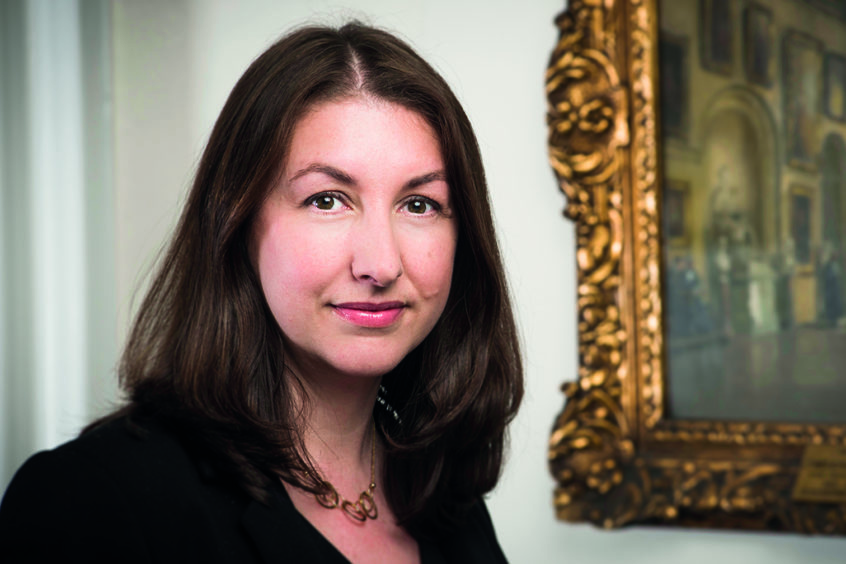
When Angela Grahame QC made her first appearance as a qualified advocate she was given a taste of what life was like for female lawyers in Scotland’s courts.
Having gone out to get coffees ahead of a trial at Airdrie court, she returned to hear a “very senior” defence lawyer asking the senior prosecutor she was working with whether they were sleeping together. Neither seemed particularly embarrassed when she interrupted them.
That was 1995 and, while things have improved somewhat, it is fair to say that women are still hugely under-represented in Scotland’s cohort of court lawyers and, perhaps as a result, under-respected.
Ms Grahame set out to change that when she became Vice-Dean of professional body the Faculty of Advocates in 2016, smashing the mould as the first woman to be competitively elected to the post in the organisation’s 500-year history.
It should come as no surprise, then, that, having stepped down after three and a half years, she has left her mark on an organisation that critics had previously suggested was less a professional association and more an Edinburgh old boys’ club.
The achievement she is most proud of is the action she took to address sexism at the bar by not only making it easier for women and other under-represented groups to make it into the Faculty in the first place but also to succeed once they got there.
When she began looking at diversity and equality after taking up the vice-deanship, Ms Graham says many Faculty members were happy simply to say the organisation was a meritocracy because they felt they had earned their positions through merit alone.
The figures did not appear to bear this out, though, with men accounting for more than two-thirds of the Faculty’s membership even though they have for many years made up just a third of law school intakes. Representation of ethnic minorities, meanwhile, should also be higher.
To help widen access, Ms Grahame was active in increasing the number of scholarships the Faculty offers and also made it her mission to get out and about to tell people from a variety of different backgrounds why those backgrounds would not in and of themselves be a barrier to a successful career at the bar.
“The Faculty had an ivory-tower reputation, but that’s not really the reality,” she says. “My dad was a plasterer, I didn’t go to private school and no one in my family had ever gone to university. People were quite surprised that the Faculty had elected someone like me.”
But, having visible role models like Ms Grahame or Lady Dorrian, who, as Lord Justice Clerk, is Scotland’s second most senior judge, is not enough when a legal system that was set up by men, for men continues to function in a way that was designed for male working lives.
“We did a survey of devils [trainee advocates] to see if we could work out why there weren’t more women coming through at the junior end,” she says.
“A common response was that women want parental leave. We don’t have parental leave [advocates are self-employed] but we do have exempted absence, a flexible policy that allows you to be exempted from practice.
“The Dean can exempt you from the cab-rank rule [which obliges advocates to accept a client] but even some members don’t know about that.”
Another reason why some women are put off pursuing a career in law is the perception that the working environment can be hostile and misogynistic, with a study carried out by the Law Society of Scotland last year finding one in five women had experienced bullying while working in the profession over the preceding five years.
Having experienced a form of it herself back at the Airdrie court, Ms Grahame worked alongside Faculty Dean Gordon Jackson QC to put in place a formal bullying and harassment policy as soon as she took up her official role.
“Gordon gave me an open door to make the changes I wanted to and I said on the first day that I wanted a bullying and harassment policy,” she recalls.
“I’d been a senior for a few years and had my finger on the pulse so knew of examples of bullying. He wondered if we needed it, but he said okay.
“A lot of people said it was a load of rubbish, we didn’t need it and poked fun at it. But when the policy launched in December 2017, [former Supreme Court Deputy President] Lord Hope sent me a letter from the House of Lords saying it was a fantastic demonstration of leadership. I was really pleased.”
Since then, Ms Grahame says she has been made aware of “a couple of issues” that have been raised by members, both of which related to forms of bullying being directed at advocates from the judiciary. The policy means there is now a formal process for dealing with this.
“As an office bearer, part of your job is that if someone is having a problem with a sheriff or a judge they can come and speak to you,” she says. “Judicial bullying is a big thing; people get shouted at, humiliated, belittled.”
On the health front, Ms Grahame, who had to take nine months off work after being diagnosed with multiple sclerosis (MS) more than a decade ago, saw that the Faculty could do more to support members with health-related issues.
“I was diagnosed with MS in 2007 and I have occasional periods when I’m not well,” she says. “I’m acutely aware of mobility issues and I used to go on about the fact there was no ladies’ toilet on the ground floor of the Faculty – people with mobility issues would have a problem with that.
“A lot of people with MS also get depression, and mental health issues are a big thing in the legal profession. I’ve not suffered from that, thank God, but I’m very aware of people who do. I created a wellbeing committee and tried to promote that we have exempted absence.
“For most people, if you’re feeling healthy you don’t need these things, but I hope that if people do need it they know it’s there. It’s little things like that I thought would help.”
There are still changes Ms Grahame would like to see made at the Faculty, not least in the way office bearers are appointed in the first instance and serve the organisation in the second.
When Ms Grahame stood for election as Vice-Dean, Faculty members were given the opportunity to vote either for her or for her opponent Roddy Dunlop QC. He has now been named Ms Grahame’s successor after no other member put their name forward to replace her, something Ms Grahame believes highlights a flaw in the way the Faculty is organised.
“I was really disappointed this time that no one stood against Roddy Dunlop because I feel it’s better for the Faculty if there’s a contest,” she says. “If there’s not a contest then one person just gets ushered through as if they are entitled.”
The other issue is that there are no set terms for the roles of Dean or Vice-Dean, meaning those who end up filling the positions can pick and choose how long they serve in them. This inevitably works in favour of the older men who have traditionally done these jobs while deterring the women who would like to.
Indeed, Ms Grahame says she would have liked to stand for the Dean’s job, but, as the mother of a young child, found doing the unpaid Vice-Dean’s role on top of her day job was untenable when there was no clear end point in sight.
“I probably would have wanted to be the Dean but Gordon’s not leaving and the number of hours I’ve put in is massive, but it’s not a paid job,” she says.
“For me, I think it probably should be a three-year commitment and that’s it. To keep up the momentum is hard going when you don’t know if the person above you is ever going to leave.”
If that barrier was brought down, Ms Grahame says there’s a good chance she would look to finish the equality work she started as Vice-Dean by putting herself forward for the top job.
“If Gordon Jackson steps down next year I don’t see myself standing,” she says, “but maybe in the future.”

Enjoy the convenience of having The Sunday Post delivered as a digital ePaper straight to your smartphone, tablet or computer.
Subscribe for only £5.49 a month and enjoy all the benefits of the printed paper as a digital replica.
Subscribe